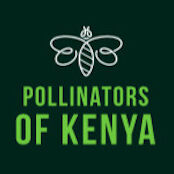Protecting Food Security and Ecosystems: The Urgent Need for Pollinator-Friendly Agriculture in Kenya
In recent years, the world has been experiencing a sharp decline in pollinator populations. Bees, butterflies, moths, and other pollinators play a critical role in our ecosystem and food systems, but their numbers are dwindling due to habitat loss, pesticide use, and climate change. In Kenya, the situation is no different. Pollinator-friendly agriculture is crucial in Kenya as it is a country heavily dependent on agriculture. In this article, we will discuss the importance of pollinators in food security and ecosystem conservation in Kenya and the urgent need for pollinator-friendly agriculture.
Introduction to Pollinators
Pollinators are animals that assist in the fertilization of plants by transferring pollen from the male to the female reproductive structures. They include insects such as bees, butterflies, moths, and beetles, as well as birds, bats, and small mammals. Pollinators are essential to the ecosystem as they ensure the reproduction of plants, which form the base of the food chain. Pollinators are also critical in the production of food crops, accounting for more than one-third of global food production.
Importance of Pollinators in Food Security and Ecosystem Conservation
In Kenya, agriculture is the backbone of the economy, accounting for 26 percent of the country’s GDP and employing 40 percent of the population. Pollinators are essential in food production, with an estimated 75 percent of food crops in Kenya dependent on pollinators. Some of the crops that depend on pollinators include coffee, tea, fruits, vegetables, and nuts.
Pollinators are also crucial in maintaining the biodiversity of ecosystems. They play a role in the reproduction of plants, which provide habitats and food for other wildlife. Pollinators are also essential in the pollination of indigenous plant species, which are critical in maintaining the cultural heritage of indigenous communities.
Threats to Pollinators in Kenya
Despite their importance, pollinators in Kenya are facing numerous threats. One of the significant threats is habitat loss due to land-use changes, urbanization, and deforestation. This loss of habitat makes it difficult for pollinators to find food and shelter. Another significant threat to pollinators is the use of pesticides. Pesticides kill not only the target pests but also non-target insects such as pollinators. Climate change is also a significant threat to pollinators, affecting their breeding patterns, food availability, and migration patterns.
The Urgent Need for Pollinator-Friendly Agriculture in Kenya
The decline in pollinator populations is a wake-up call for the need to adopt pollinator-friendly agriculture in Kenya. Pollinator-friendly agriculture is an approach that involves creating and managing agricultural landscapes that provide habitat and food for pollinators. The approach includes using diverse cropping systems, reducing pesticide use, and planting flowering plants that provide nectar and pollen for pollinators.
In Kenya, some farmers have already started adopting pollinator-friendly agriculture practices. These practices include intercropping with legumes, planting hedgerows, and using organic fertilizers. However, more needs to be done to scale up these practices to ensure that all farmers adopt pollinator-friendly agriculture practices.
Conclusion
In conclusion, pollinators play a crucial role in food security and ecosystem conservation in Kenya. The decline in pollinator populations is a significant threat to Kenya’s agriculture and biodiversity. Adopting pollinator-friendly agriculture practices is an urgent need to conserve pollinators, maintain the productivity of our agricultural systems, and protect biodiversity.
FAQs
- What is pollinator-friendly agriculture?
Pollinator-friendly agriculture is an approach that involves creating and managing agricultural landscapes that provide habitat and food for pollinators. This approach includes using diverse cropping systems, reducing pesticide use, and planting flowering plants that provide nectar and pollen for pollinators.
- Why are pollinators important in Kenya’s agriculture?
Pollinators are crucial in Kenya’s agriculture as they are responsible for pollinating an estimated 75 percent of food crops in Kenya. Without pollinators, the production of crops such as coffee, tea, fruits, vegetables, and nuts would be severely impacted.
- What are the threats to pollinators in Kenya?
Pollinators in Kenya face numerous threats, including habitat loss due to land-use changes, urbanization, and deforestation, the use of pesticides, and climate change. These threats are leading to a decline in pollinator populations, which could have severe impacts on food security and ecosystem conservation in Kenya.
- What are some pollinator-friendly agriculture practices that farmers can adopt?
Farmers can adopt various pollinator-friendly agriculture practices, such as intercropping with legumes, planting hedgerows, using organic fertilizers, and reducing pesticide use. These practices help create and manage agricultural landscapes that provide habitat and food for pollinators.
- How can we promote pollinator-friendly agriculture in Kenya?
Promoting pollinator-friendly agriculture in Kenya involves creating awareness among farmers about the importance of pollinators and the threats they face. Governments and NGOs can also provide support to farmers through training, technical assistance, and financial incentives to adopt pollinator-friendly agriculture practices. Additionally, there is a need to strengthen policies that promote the conservation of pollinators and their habitats.




